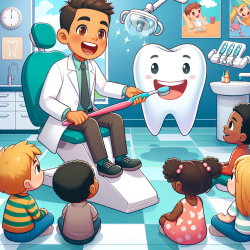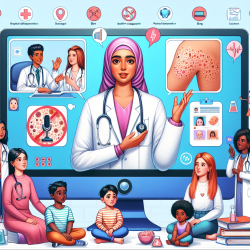Introduction
In the realm of speech-language pathology, integrating insights from global mental health research can significantly enhance the effectiveness of therapeutic interventions. The research article "Adolescent Sex and Psyche in Brazil: Surveillance, Critique and Global Mental Health" offers valuable perspectives that can be utilized by practitioners to refine their approaches and improve outcomes for children and adolescents.
Understanding the Research
The research conducted by Dominique Béhague explores the intersection of adolescent reproductive and mental health within the context of Brazil's public health programs. It highlights the historical and cultural factors that have shaped these programs and critiques the biomedical and pharmaceutical models that often dominate the field of global mental health (GMH).
Key Takeaways for Practitioners
For speech-language pathologists, the following insights from the research can be particularly beneficial:
- Cultural Sensitivity: Understanding the cultural and historical context of the populations we serve is crucial. This research underscores the importance of integrating local cultural practices and beliefs into therapeutic interventions.
- Holistic Approaches: The research critiques the over-reliance on biomedical models, advocating for a more holistic approach that considers social, political, and economic factors. Speech-language pathologists can enhance their practice by incorporating these broader considerations into their assessments and interventions.
- Collaborative Practices: The study highlights the value of interdisciplinary collaboration, suggesting that speech-language pathologists work closely with other healthcare providers to address the complex needs of adolescents.
Encouraging Further Research
While the insights from this research are valuable, it also serves as a call to action for practitioners to engage in further research and exploration. By conducting studies that investigate the intersection of speech-language pathology and global mental health, practitioners can contribute to the development of more effective, culturally sensitive interventions.
Conclusion
Incorporating insights from global mental health research into speech-language pathology practice can lead to more effective and culturally relevant interventions. By understanding the broader context of adolescent health and engaging in interdisciplinary collaboration, practitioners can enhance their ability to support the mental and communicative well-being of children and adolescents.
To read the original research paper, please follow this link: Adolescent Sex and Psyche in Brazil: Surveillance, Critique and Global Mental Health.










